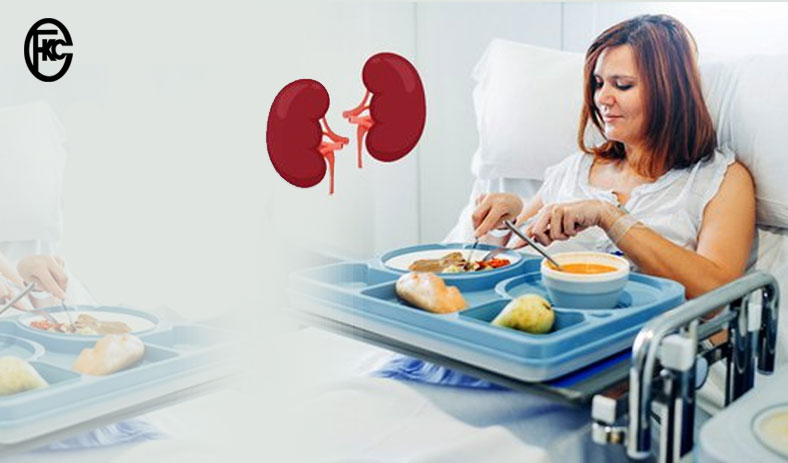
Here are some following nutritional guidelines for patients receiving in-center hemodialysis, which are crucial for managing their health and well-being:
Fluid Intake Management: Limit fluid intake as prescribed by your healthcare team to avoid fluid overload and strain on the heart.
Protein Intake: Ensure adequate protein intake to support muscle strength and prevent malnutrition. Aim for high biological value proteins (e.g., lean meat, fish, eggs) to meet your specific needs.
Phosphorus Control: Restrict phosphorus intake to prevent bone and cardiovascular complications. Avoid high phosphorus foods like processed meats, dairy, and certain types of beans.
Potassium Management: Monitor potassium levels closely. Limit high potassium foods such as bananas, oranges, tomatoes, and potatoes to avoid complications like cardiac arrhythmias.
Sodium Restriction: Reduce sodium intake to manage blood pressure and fluid balance. Avoid processed foods, canned goods, and limit added salt in cooking and at the table.
Calcium Requirements: Maintain adequate calcium intake through dietary sources or supplements as recommended. Dairy products, leafy greens (with careful monitoring of phosphorus), and calcium-fortified foods can help.
Vitamin D Supplementation: Often, patients on hemodialysis require vitamin D supplementation due to reduced activation in the kidneys. Follow your healthcare provider's recommendations closely.
Fluid and Weight Monitoring: Weigh yourself regularly and track fluid intake to adhere to prescribed limits. Report any sudden weight gain or symptoms of fluid retention to your healthcare team promptly.
Individualized Caloric Needs: Adjust calorie intake based on your age, weight, activity level, and metabolic requirements. Avoid excessive calorie intake to prevent weight gain and complications.
Monitoring Blood Levels: Attend regular blood tests to monitor key indicators such as potassium, phosphorus, calcium, and albumin. These tests guide dietary adjustments and supplementation needs.
Fiber Intake: Consume adequate fiber to support digestive health and prevent constipation. Choose whole grains, fruits, and vegetables (within phosphorus limits) to meet fiber requirements.
Iron and Erythropoietin (EPO) Therapy: Some patients may require iron supplementation or EPO therapy to manage anemia associated with kidney disease. Follow your healthcare provider's recommendations regarding iron-rich foods and supplements.
Educational Support: Attend nutrition education sessions provided by your dialysis center to enhance your understanding of dietary requirements, portion control, and food choices.
Medication Timing with Meals: Take medications as prescribed, and some may need to be taken with meals to enhance absorption or reduce side effects.
Consultation with Registered Dietitian: Regularly consult with a registered dietitian who specializes in renal nutrition. They can provide personalized advice, meal planning, and ongoing support to optimize your dietary management.
Conclusion:
These guidelines aim to support overall health, minimize complications, and improve quality of life for patients undergoing in-center hemodialysis. Always follow the specific recommendations provided by your healthcare team based on individual health needs and lab results.